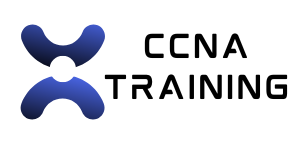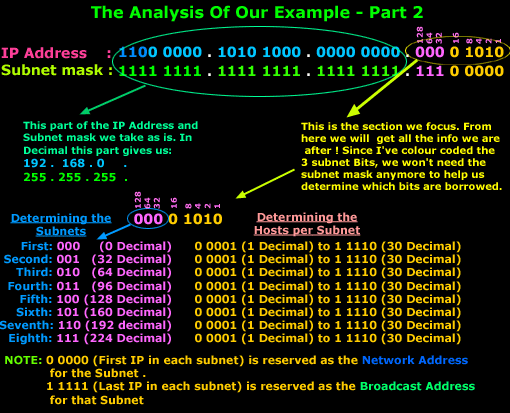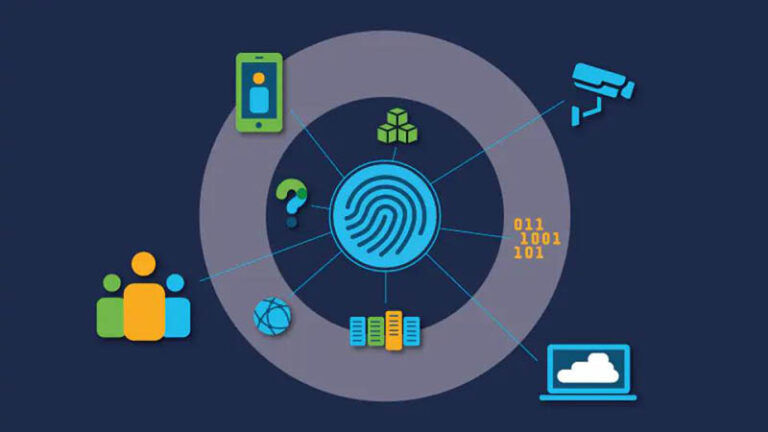The Cisco Certified Network Associate (CCNA) certification is a widely recognized credential in the IT industry. It validates the ability to install, configure, operate, and troubleshoot medium-sized routed and switched networks. The CCNA certification is designed for network specialists, network administrators, and network support engineers with 1-3 years of experience. It is also a prerequisite for more advanced Cisco certifications such as CCNP and CCIE.
The CCNA certification covers a wide range of networking topics including network fundamentals, LAN switching technologies, routing technologies, infrastructure services, and infrastructure maintenance. It also includes security and automation, making it a comprehensive certification for networking professionals. The CCNA certification can be obtained by passing one of the following exams: CCNA 200-301, CCNA Security 210-260, CCNA Collaboration 210-060, CCNA Data Center 200-150, and more. The CCNA 200-301 exam is the most popular and widely recognized exam for the CCNA certification.
Key Takeaways
- CCNA certification is a widely recognized credential for networking professionals, demonstrating the ability to install, configure, operate, and troubleshoot medium-sized routed and switched networks.
- Obtaining a CCNA certification can lead to increased job opportunities, higher salary potential, and validation of networking skills and knowledge.
- Prerequisites for taking the CCNA exam include a good understanding of networking fundamentals, basic IP addressing, and familiarity with network devices such as routers and switches.
- Study resources for preparing for the CCNA exam include official Cisco training courses, practice exams, study guides, and online resources such as video tutorials and forums.
- Tips for passing the CCNA exam include creating a study plan, practicing hands-on with networking equipment, and taking advantage of practice exams to gauge readiness.
- CCNA certified professionals can pursue career opportunities such as network administrator, network engineer, and systems administrator, with potential for advancement to higher-level networking certifications.
- Continuing education and advancement options for CCNA certified professionals include pursuing higher-level Cisco certifications such as CCNP or CCIE, as well as staying updated on industry trends and technologies through ongoing training and professional development.
Benefits of Obtaining a CCNA Certification
Obtaining a CCNA certification can open up a world of opportunities for IT professionals. It is a valuable credential that is recognized and respected by employers around the world. The CCNA certification demonstrates a solid foundation in networking and is a testament to an individual’s commitment to their career in IT. With the increasing demand for networking professionals, having a CCNA certification can give job seekers a competitive edge in the job market.
In addition to enhancing job prospects, obtaining a CCNA certification can also lead to higher earning potential. According to PayScale, the average salary for a CCNA certified professional is $78,000 per year. This is significantly higher than the average salary for non-certified networking professionals. Furthermore, the CCNA certification can also lead to career advancement opportunities such as promotions and leadership roles within an organization.
Prerequisites for Taking the CCNA Exam
There are no formal prerequisites for taking the CCNA exam, however, it is recommended that candidates have a good understanding of networking fundamentals before attempting the exam. It is also recommended that candidates have 1-3 years of experience working with Cisco networking devices. While there are no formal prerequisites, it is important for candidates to have a solid understanding of networking concepts such as IP addressing, subnetting, routing protocols, and switching technologies.
In addition to having a good understanding of networking fundamentals, candidates should also have hands-on experience working with Cisco networking devices. This can include configuring routers and switches, troubleshooting network issues, and implementing network security measures. Hands-on experience is essential for success in the CCNA exam as it tests practical knowledge and skills in addition to theoretical knowledge.
Study Resources for Preparing for the CCNA Exam
| Resource | Type | Cost | Rating |
|---|---|---|---|
| Cisco Networking Academy | Online Course | 4.5/5 | |
| CCNA Official Cert Guide | Book | 4/5 | |
| CBT Nuggets | Video Training | 4.7/5 | |
| Boson ExSim-Max for CCNA | Practice Exams | 4.8/5 |
There are a wide range of study resources available to help candidates prepare for the CCNA exam. These resources include study guides, practice exams, video tutorials, and hands-on labs. One of the most popular study resources for the CCNA exam is the official Cisco Press study guides. These study guides provide comprehensive coverage of all the topics included in the exam and are written by experts in the field.
In addition to study guides, candidates can also benefit from using practice exams to test their knowledge and identify areas for improvement. There are many online platforms that offer practice exams for the CCNA exam, including Boson, Pearson Vue, and MeasureUp. These practice exams simulate the actual exam environment and can help candidates gauge their readiness for the exam.
Another valuable study resource for preparing for the CCNA exam is video tutorials. Platforms such as CBT Nuggets and Pluralsight offer video tutorials that cover all the topics included in the exam in a visual and engaging format. Finally, hands-on labs are an essential study resource for the CCNA exam as they provide practical experience working with Cisco networking devices.
Tips for Passing the CCNA Exam
Passing the CCNA exam requires thorough preparation and dedication. Here are some tips to help candidates pass the CCNA exam:
1. Create a study plan: Develop a study plan that covers all the topics included in the exam and allocate specific time each day for studying.
2. Use multiple study resources: Utilize a variety of study resources such as study guides, practice exams, video tutorials, and hands-on labs to gain a comprehensive understanding of the exam topics.
3. Practice subnetting: Subnetting is a key topic in the CCNA exam and requires practice to master. Use online subnetting calculators and practice exercises to improve subnetting skills.
4. Hands-on experience: Gain hands-on experience working with Cisco networking devices to reinforce theoretical knowledge and develop practical skills.
5. Join study groups: Join online forums and study groups to connect with other candidates preparing for the CCNA exam and share knowledge and resources.
6. Take practice exams: Take multiple practice exams to gauge readiness for the actual exam and identify areas for improvement.
7. Stay calm and focused: On the day of the exam, stay calm and focused, and carefully read each question before answering.
Career Opportunities for CCNA Certified Professionals

Obtaining a CCNA certification can lead to a wide range of career opportunities in the IT industry. Some common job roles for CCNA certified professionals include network administrator, network engineer, systems administrator, and technical support engineer. These roles involve designing, implementing, and maintaining network infrastructure, troubleshooting network issues, and ensuring network security.
In addition to these roles, CCNA certified professionals can also pursue specialized career paths such as network security specialist, wireless network engineer, and voice engineer. These specialized roles require in-depth knowledge of specific networking technologies and can lead to higher earning potential.
Furthermore, obtaining a CCNA certification can also open up opportunities to work with leading technology companies such as Cisco Systems, Amazon Web Services (AWS), Microsoft, and Google. These companies often seek out CCNA certified professionals to fill roles in network operations, cloud computing, and cybersecurity.
Continuing Education and Advancement Options for CCNA Certified Professionals
After obtaining a CCNA certification, professionals can pursue continuing education and advancement options to further enhance their skills and career prospects. One common advancement option is to pursue higher-level Cisco certifications such as CCNP (Cisco Certified Network Professional) or CCIE (Cisco Certified Internetwork Expert). These certifications build upon the knowledge gained from the CCNA certification and focus on more advanced networking concepts and technologies.
In addition to pursuing higher-level certifications, CCNA certified professionals can also benefit from gaining experience with emerging technologies such as cloud computing, virtualization, and cybersecurity. This can involve taking additional training courses or obtaining certifications in these specialized areas to stay current with industry trends and advancements.
Furthermore, continuing education options such as attending industry conferences, participating in webinars, and joining professional networking groups can provide opportunities to expand professional networks and stay updated on the latest developments in the IT industry. Continuing education is essential for staying competitive in the ever-evolving field of IT and can lead to new career opportunities and advancements.
In conclusion, obtaining a CCNA certification is a valuable investment for IT professionals looking to advance their careers in networking. The certification opens up a wide range of career opportunities, leads to higher earning potential, and provides a solid foundation for further advancement in the field of IT. With thorough preparation and dedication, passing the CCNA exam is achievable, and with continuing education options available, certified professionals can stay current with industry trends and advancements to further enhance their skills and career prospects.
FAQs
What is CCNA (Cisco Certified Network Associate)?
CCNA (Cisco Certified Network Associate) is a certification program offered by Cisco that validates the ability to install, configure, operate, and troubleshoot medium-sized routed and switched networks.
What are the prerequisites for the CCNA certification?
There are no formal prerequisites for the CCNA certification, but it is recommended that candidates have a good understanding of networking fundamentals and basic IP addressing.
What topics are covered in the CCNA exam?
The CCNA exam covers a wide range of topics including network fundamentals, network access, IP connectivity, IP services, security fundamentals, and automation and programmability.
What are the benefits of obtaining a CCNA certification?
Obtaining a CCNA certification can lead to increased job opportunities, higher salary potential, and the ability to demonstrate a solid understanding of networking concepts and technologies.
How long is the CCNA certification valid for?
The CCNA certification is valid for three years. After three years, individuals can recertify by passing the current CCNA exam or a higher-level Cisco certification exam.















